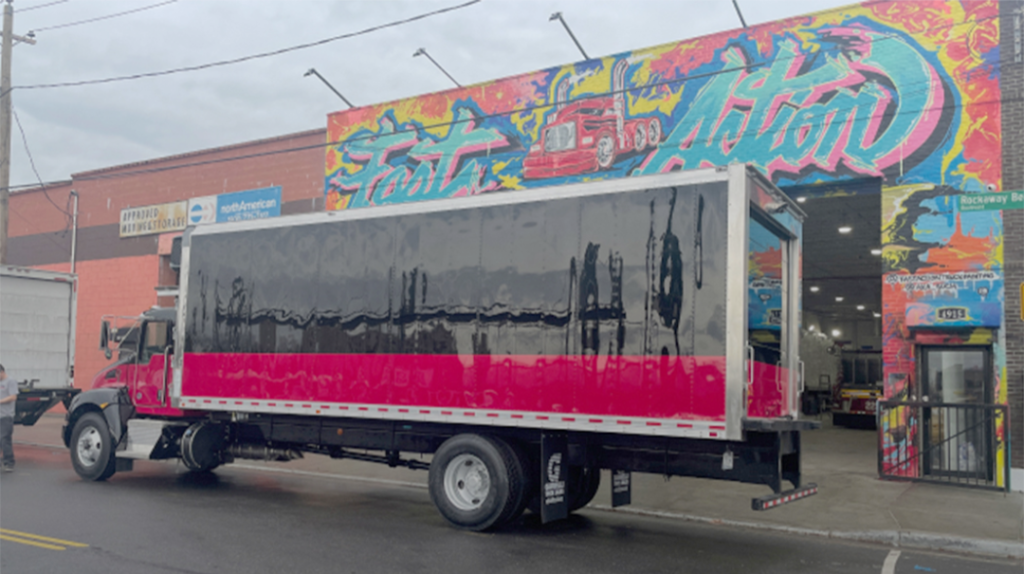
Managing a commercial fleet in a fast-paced city like New York City isn’t easy. From pothole-ridden streets to tight parking spaces and unpredictable weather, your fleet vehicles are exposed to constant wear and tear. While routine oil changes and engine checks are essential, fleet bodywork maintenance is just as critical—and often overlooked.
Neglecting dents, rust, or damaged panels can lead to vehicle downtime, safety risks, and increased repair costs. Here’s how regular bodywork can help you keep your NYC fleet moving efficiently and save money in the long run.
🚛 Why Bodywork Matters in Fleet Maintenance
Fleet vehicles serve as both transportation and brand ambassadors. A truck or van with rusted panels or visible collision damage not only looks unprofessional but can also compromise safety and performance.
Here’s what regular bodywork prevents:
- Rust spreading beneath paint or panels
- Water intrusion into electrical systems
- Weakened structural integrity after minor impacts
- DOT inspection issues or failed fleet inspections
🛠️ Common NYC Fleet Body Damage Risks
New York City presents unique hazards for fleet vehicles:
- Tight urban driving conditions → Minor fender benders, mirror scrapes
- Street parking → Door dings, bumper damage
- Salt & grime → Accelerated rust in winter months
- High mileage → More frequent wear on panels, bumpers, and undercarriage
Regular body inspections allow fleet managers to catch small problems before they grow into costly repairs or full replacements.
⏱️ How Regular Bodywork Reduces Downtime
Downtime means lost revenue. If your fleet is off the road, deliveries are delayed, clients are unhappy, and your bottom line takes a hit.
Benefits of regular bodywork services:
- Faster repairs: Small dents and scratches can be fixed before they require major work
- Predictable scheduling: Routine maintenance helps avoid last-minute emergencies
- Improved resale value: Well-maintained fleet vehicles fetch better prices when replaced
- Better fuel efficiency: Damaged panels can affect aerodynamics and performance
- Enhanced safety: Properly aligned bumpers and frames protect drivers in collisions
🧰 What to Include in Your Fleet Bodywork Checklist
Here’s a basic guide for consistent fleet body maintenance:
- Weekly visual inspections (mirror, bumpers, door panels, undercarriage)
- Quarterly professional inspections by a certified body shop
- Touch-up paint or rust treatment every 6 months
- Immediate repair for any cracks, bent panels, or damaged safety features
- Seasonal cleaning & undercoating, especially after winter
🔧 Partner with a Fleet Body Repair Specialist in NYC
Managing a fleet is easier when you have a trusted repair partner. A body shop that specializes in fleet maintenance can:
- Handle multiple vehicles at once
- Offer faster turnaround times
- Keep detailed repair logs for each unit
- Provide mobile estimates or on-site service
✅ Tip: Look for repair shops in NYC that offer 24/7 service, OEM parts, and experience with commercial fleets (delivery vans, trucks, and utility vehicles).
✅ Stay Ahead of the Damage
NYC will always be tough on vehicles—but with the right bodywork routine, your fleet doesn’t have to suffer. A proactive maintenance schedule ensures:
- Fewer unexpected breakdowns
- Longer vehicle life
- Lower long-term costs
- A strong, reliable brand image on the road
Don’t wait for the damage to add up. Keep your business moving and your vehicles looking sharp with regular fleet bodywork services. Contact us.
